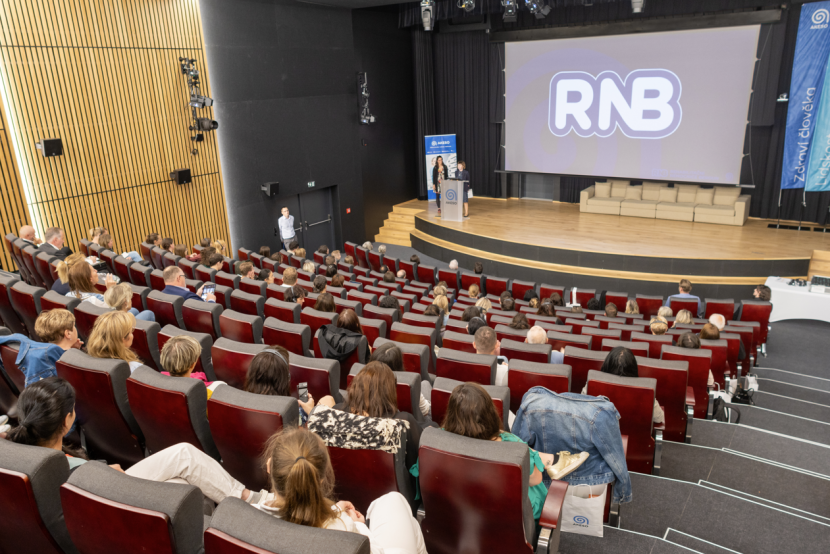The event was organized in cooperation with Charles University, represented by Prof. Kamila Řasová, PhD, PhD, the guarantor of the field of physiotherapy at the 3rd Faculty of Medicine. She visited our hospital together with colleagues and students from the Finnish Savonia University of Applied Sciences and the Greek University of Thessaly, who came to the Czech Republic as part of the Blended International Program.
"Physiotherapy has an irreplaceable role in the treatment of neurological patients. This means that the quality of physiotherapy education should potentially improve the care offered and thus the quality of life of patients. Therefore, I was very pleased and thankful that the Rehabilitation Hospital Beroun let our and visiting students have a look into the operation of the Rehabilitation Centre of MUDr. Jan Calta. Thank you also for organizing the conference, where the students got the opportunity to listen not only to interesting lectures, but also to meet colleagues from practice. Both of them have had a great contribution to improving the quality of education in the field of physiotherapy," evaluated Kamila Řasová.
Even before the start of the individual presentations, MUDr. Milena Kolářová, head of the Jan Calta Rehabilitation Centre, took the floor to welcome more than ninety participants to the conference. She then handed over the floor to Professor Řasová, who was the first speaker. Her topic introduced the audience to the facts that properly indicated aerobic training, performed under professional supervision, significantly helps to alleviate the symptoms of the disease in patients with multiple sclerosis.
Second on the podium was Marja Äijö, Ph.D., a senior lecturer in the Physical Therapy degree program at Savonia University of Applied Sciences. Her lecture addressed the fact that with the lengthening of human life, come frequent neurological problems. She presented what she called the Finger Model to those in attendance, which shows that current measures in five lifestyle areas can help prevent and delay the development of cognitive decline.
Third in line, and also as a home speaker, was physiotherapist Bc. Janis Lukáš, Cert. MDT. He presented the issue of physiotherapy in patients suffering from Parkinson's disease. He presented several strategies and practical exercise techniques that help to significantly alleviate the symptoms of this disease. His lecture received the greatest response with the most interesting discussion.
After a one-hour refreshment break, everyone in the room sat down for the fourth presentation by Assistant Professor Eiji Partanen-Kivinen, MSc, also from Savonia University of Applied Sciences. She had prepared a concept for the guests called Practice it, or Lose it (Use it, before you lose it), which was about the degenerative nature of various neurological disorders. In these cases, physical activity is very important to prevent negative progression of both cognitive and motor symptoms. And Finland is the furthest away in the European Union in terms of direct economic support for an active lifestyle as part of a strategy to prevent neurological diseases.
The final two lectures were given by Greek colleagues from the Faculty of Health Sciences of the University of Thessaly. Dr. Zacharias Dimitriadis presented findings on muscle spasticity, which is often associated with various neurological disorders. The audience learned that this type of training in patients suffering from mild to moderate neurological disease improves strength and function without affecting spasticity.
The last speaker was Dr. Thomas Besios, whose main area of expertise is neurological physiotherapy. He introduced the audience to rehabilitation techniques, including, for example, the Vojta method, that lead to improved functional status in patients after stroke. The key to successful results is strengthening neuroplasticity in the brain, for example with the help of motor learning. Similarly, the concept of practice or decay also applies here. In the sense that synapses that are not actively involved in the practice of motor functions for a prolonged period of time gradually disappear.














